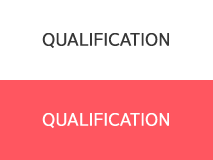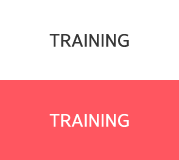Global Navigation Bar
D2340
Today
2026.01.26
- Home >
- FAQs
-
What is the value of an international diploma in pain management?
- The professor team of Korea university of international diploma of interventional pain medicine has been teaching pain doctors and have proved to top teachers in the world during the previous pain diploma courses delivered by the University of Montpellier for 5 years.
- The Korea University has collaborated with the University of Montpellier for the postgraduate Diploma in pain intervention since 2016.
- Korea University decided to continue to maintain the postgraduate Diploma in pain intervention in Seoul to preserve the spirit of the education due to the expiration of the MOU of both organizations.
- We will focus on practical pain management that consists of theological knowledge and hands-on workshops that are needed most in clinical practices.
-
What is the difference between certificate & diploma programs?
- Considering Certificate & Diploma Programs?
- These days everyone is talking about going back to school to advance their careers. And if you don't have time to do a traditional degree program, getting a diploma or certificate is a great alternative.
Relatively quick and less expensive than a bachelor's degree, certificates and diplomas can help you train in a specific area or skill that can secure your job, advance your career, and even put some extra dollars in your pocket.
But what,s the difference between the two, and how do you know which is right for you?
While there is a fair amount of overlap between certificate and diploma programs, and with some schools appearing to use the names interchangeably, it can be confusing to differentiate between the two. In general, though, there are a few main differences between certificates and diplomas. - Certification Programs
- Certification programs are typically specialized in one specific skill or area, which you'll study and learn in one or two courses. These programs don't offer a broad overview of a field or industry, and are often a good option for someone who already has a degree or work experience in the field. Let's say, for example, that you're an accountant with a bachelor's degree. You want to get into forensic accounting because it's a hot new part of the industry, but don't want to go back to school for another degree. A forensic accounting certification will build on the accounting skills you already have, and teach you the need-to-know basics of forensic accounting.
- Diploma Programs
- Diploma programs, on the other hand, tend to be longer and more in-depth. They allow you to study a specific area of specialization and get a good overview of the field, without earning an actual degree.
These comprehensive programs are a great option for someone who wants to make a career change and get into a new field. If you were interested, for example, in a graphic design career, a graphic design diploma program would consist of multiple classes that would teach you fundamentals of graphic design, as well as different computer programs and technologies utilized in that industry.
-
What does the program consist of?
- 9days, 3 sessions
- Access to 100 lectures (updated annually)
- 6 days of hands on workshops (A total of 32 hours and more than 40 blocks demonstrated)
- 5 days of clinical attendance and block performance with an accredited team
- A written examination
-
IS THE ATTENDANCE MANDATORY?
- YES ! Perhaps in the future some courses will be postcasted but we are privileging the direct contact between students and teachers
-
HOW MUCH IS THE REGISTRATION FEE?
- We provide numerous lectures, live workshops, 2 day cadaver workshops. This is a non profit self founded project under the financial control of Korean multidiscipliary association of musculoskeletal pain and University of Montpellier. This is why the registration fee is very reasonable.
- Registration fee around Korean won 9,000,000 all included except air tickets and accommodation.
- Special discount (30%) for emerging countries (list updated every year available on demand).
-
WHO ARE THE PROFESSORS?
- 30% of instructors are from Korea University (Professors Sang Heon Lee, Sang Hoon Lee, et al)
- 30% from various prestigious universities across the world:
-
- -Wing S Chan – Australgia
- -Rajesh Singh, Maysia
- -Philip Peng, Canada
- -Carina li, Hong Kong
- -Gustavo Reque Rydberg, Spain
- -Sean Lin, Taiwan
- -Chih-Peng Lin, Taiwan
- -Yi-Chian Wang, Taiwan
- 40% from Korea :
-
- -Sang Hoen, Lee – Korea University
- -Dong Whan, Moon – Former professors at Seoul St. Mary’s Hospital, Catholic Medical Center, and Moon Pain Center
- -Sang Chul Lee, Lee Sang Chul pain clinic
- -Jae Ki Ahn, Inje University
- -Dong Ah Shin, Yonsei university
- -Kyung Hoon, Min – Cha Medical Center
- -Dong Kyu, Lee – Kyeimyung University
- -Sang Hoon, Lee – Madi Pain Management Center, Jeonju
- -Wiliam Koh – Madi Pain Management Center, Jeju
- -Soon Tak Oh, Soo OS clinic
- -Hyoung Ihl Kim, Ganju institute of science and technology
-
Examination Overview
- Validation of the clinical attachment
- Written examination of 20 MCQs:
- 20 Questions pertaining to knowledge
- Management of 8 clinical cases
- 8 US scans or Radiology images (identifying pathology or labeling)
- 4 Questions pertaining to general knowledge and culture associated with pain management
-
WHAT EDUCATIONAL MATERIAL IS PROVIDED?
- All slides will be provided in PDF format approximately one week after each session.
- One 240 page booklet
-
CAN I DO MY CLINICAL ATTACHMENT AFTER THE WRITTEN EXAMINATION?
- Yes, in fact we recommend it. Because of the progress that will be made during conferences and workshops we advise that clinical attachment be started after the written examination but before January of next year.
-
DO I NEED TO BE ANESTHESIOLOGIST TO REGISTER?
- No
- Any doctor of medicine will be qualified to register for this program.
-
Available honors or distinctions?
- Outstanding students will be awarded gold and silver medals in addition to their diplomas upon completion of the program.
-
How many students will be awarded diplomas?
- 30 students will be taken initially but the program will be expanded to accommodate 35 within one year and will increase according to demand for the program.
- During the workshops there will be a maximum of 10 students per station.
-
How long is the application period?
- Applicants will be considered until the maximum number of students is reached or on June 15th.
-
What makes this program unique?
- The professor team of Korea university of international diploma of interventional pain medicine has been teaching pain doctors and have proved to top teachers in the world during the previous pain diploma courses delivered by the University of Montpellier for 5 years.
- This program has been created through the cooperation of an established team of physicians passionate about interventional pain from France, Canada, Asia, the middle east, and other various countries. An increasing number of pain related diseases have been treated through procedures or injections, and recent findings are confirming these clinical pathways to be effective in treating pain diseases.
-
WHO HAVE RECEIVED THESE DIPLOMAS?
- As of 2022, A lot of students have received the diploma of interventional pain medicine from the program in Seoul delivered by the University of Montepellier. Korea University had collaborated with Montpellier university for 5 years leading the course.
- These students came from:
- Gulf Countries
- - Middle East
- Africa
- Europe
- USA
- Canada
- Asia
- Far East Asia
- Korea
- Gulf Countries
-
WHO ARE RESPONSIBLE PARTIES OF THESE PROGRAMS?
- A Memorandum Of Understanding was signed by Sang Hoon Lee (Chairman of Korean Multidisciplinary Association of Musculoskeletal pain) and Pr. Young Wook Yoon, M.D., Ph.D. (Dean, Korea University College of Medicine)
- The founding members are :
- - Sang Heon Lee, and Sang Hoon Lee
- The executive members are:
- - Sang Heon Lee, and Sang Hoon Lee


















